#anglo-zulu war
Text
Louis Napoleon
Oscar Wilde, here playing the ill-starred scion of nobility card to good effect, whilst praising democratic France.
Eagle of Austerlitz! where were thy wings
When far away upon a barbarous strand,
In fight unequal, by an obscure hand,
Fell the last scion of thy brood of Kings!
Poor boy! thou shalt not flaunt thy cloak of red,
Or ride in state through Paris in the van
Of thy returning legions, but instead
Thy mother France, free and republican,
Shall on thy dead and crownless forehead place
The better laurels of a soldier's crown,
That not dishonoured should thy soul go down
To tell the mighty Sire of thy race
That France hath kissed the mouth of Liberty,
And found it sweeter than his honied bees,
And that the giant wave Democracy
Breaks on the shores where Kings lay couched at ease.
*Louis Napoleon was the the only son of Napoleon III. He died a casualty of war, in a botched military operation during the Anglo-Zulu war.
#prince imperial#louis napoleon#poetry#oscar wilde#death#war#colonialism#futility#anglo-zulu war#power#politics#posturing#botched job
2 notes
·
View notes
Text
Wrapping up today with King Cetshwayo:
Cetshwayo, the last independent ruler of Zululand, was the ruler who led the fight against the British and who, after defeat, sough to keep up the fight to keep Zulu land Zulu and to resist the land grabs by both Boer and Briton. That he was one of many rulers who failed does not distinguish him from others, that he and his people outright won multiple major victories before their defeat instead of fighting a heroic but ultimately futile set of last stands to defy the courses of time, OTOH, very much does.
His career and his defeat marks an appropriate swansong prior to the Partition of Africa and in many ways the close of the era when European power in Africa was limited to enclaves either right on its coastlines or in the case of South Africa, the one significant zone of conquest that reached into the interior to any great degree.
#lightdancer comments on history#black history month#military history#history of south africa#anglo-zulu war#cetshwayo
0 notes
Note
oh my god, you’ve seen Zulu (1964)?! my dad made me watch it with him because I wouldn’t shut up about Waterloo (1970) and I suppose he was right to because it’s fully affirmed my love of war and war movies… I don’t understand why they’re building a bridge across a stream that can be crossed on foot, though? am I missing something?
Yes!!! 🤣 I've watched both of those so many times. 😂 I mean keeping in mind I haven't watched it in a long time, I think it's just because it would be more practical to have an actual bridge for troops to cross rather than slowly wading across through that shallow bit.
Some bonus stuff 🤣 I actually don't know when this photo is from, but it's of the Buffalo River (KwaZulu-Natal) near Rorke's Drift, so it at least gives an idea of what they were representing. I believe Chard was also just repairing the pontoon bridge(s) instead of building them, but that's a detail that isn't at all important to the movie. 🤣
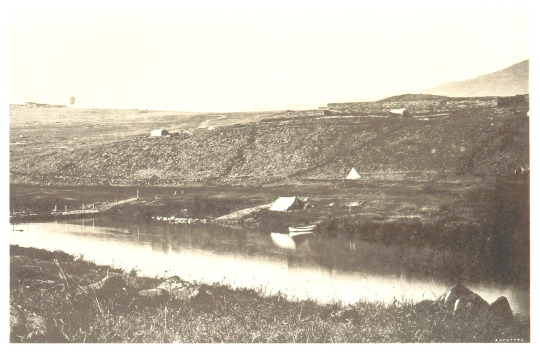
#If all of this is totally wrong do not @ me kdsjhsdkh#I studied the Anglo-Zulu war of 1879 for awhile but that was several years ago now#asks#I'm so glad you sent this ask 😂
3 notes
·
View notes
Text
Opinions on Kanduu (Episode 10 SPOILERS)
I love that Kanduu is not entirely a villain, more like an anti-hero, he's just someone who believes what he is doing is the right thing. He was also not a villain to begin with, rather he was just a soldier, or rather a Lieutenant, who was responsible for the well-being of other soldiers under his command. He was just someone who ended up desperate to prevent even more deaths and to survive, and people can make bad decisions when they're desperate.
While it is wrong to try to sacrifice 1000 people, I also do see where he's coming from and that he is right in wanting to stop wars. He's just going the wrong way about it.
I believe the war he was in was the Anglo-Zulu war, and in real life, the British wanted the Zululand in South Africa for a few reasons, but one was so they could get the Zulu people to perform labour digging/mining for diamonds. Kanduu says "We were fighting in a country we did not belong in, for something that was not ours to begin with", and this is what I believe he's referring to.
As for the next season, which I do believe is coming, it would be stupid to not have a second season when season 1 ended on a cliffhanger, I think Kanduu is going to be far more dangerous. He wanted to see
if he could make the kids understand what he was doing, to try to see where he was coming from, but now that he knows they're against him he's not going to take "no" for an answer a second time. He's not
going to play fair or be nice.
63 notes
·
View notes
Text
You know what, it's April fool's day so I'm letting go of all my worries about how this insane rambling will look like cause IT'S TIME TO TALK ABOUT THE ZULU KINGDOM BABY
What is the Zulu kingdom? It is a African kingdom located in Austral Africa, founded in 1816 by the first king Shaka Zulu (also called Shaka kaSenzangakhona).
This kingdom stayed independent until 1879, when the Anglo Zulu war saw the British empire take control of the state, but before this, the Zulu kingdom had an enormous impact on Southern Africa as a whole, both in terms of geography, culture and warfare.
To explain this, let's go back to the foundation of the kingdom. At the time, the Zulus were not a kingdom, but a tribe. Shaka Zulu, who was one of the numerous children of the tribe leader Senzangakhona, took power after his death and set out to do numerous reforms to the way of life of the Zulus, which would turn crucial to the tribe's transition into one of the most fearsome military states of its time.
The first reforms were in weaponry: while the Zulus, like other tribes of the region, used mainly spears to fight, Shaka introduced new ways of fighting with the iklwa (an assegai which would play a role similar to a sword) and the isihlangu (a 2 meter tall cow hide shield perfect to shield Zulu soldiers from enemy spears). With those, the strategy would be to rush towards the enemy lines, who still used spears, and go into hand to hand combat where the iklwa were superior.
Shaka Zulu also introduced new military tactics, which were never seen before in Southern Africa -owning him the nickname of "the African Napoleon"-, though the one he is the most well known for is the bullhorn strategy. This tactic would separate the army in three contingents: the horns, formed of the younger soldiers whose role would be to deploy quickly and circle the enemies as to stop them from running; the chest, the main force which would then hit the enemy (in a hammer and anvil formation similar to those of Alexander the Great); and the loin, a special force staying behind and ready to intervene wherever they would be needed, wether it was finishing off fleeing enemies, helping a struggling group or assisting in the retreat.
All of this lead the Zulus to easily beat and take control of the neighboring tribes and states, in an event knows as the Mfecane (crushing in Zulu), where people would flee the Zulu menace and bring in their escape the Zulu strategies, which in turn would make them a danger to the people they were fleeing into. But not everyone fled, and a lot of tribes became integrates into Zulu society.
This is where we can see Shaka Zulu's reforms of the military to their full extent: the first thing he did with it was to organize the military into ranks based on veterance. As said before, the youngest soldiers would form the horns, and the oldest the chest. Another thing was that every group of soldier (the impi) was to be formed of men from different tribes. This way, a feeling of unity would form that would stop the conquered groups from wanting to revolt.
By doing this, Shaka Zulu created a sentiment of Zulu identity even in groups originally not Zulu, which would stay up to this day.
And that is how the Zulu kingdom came to be! Through the numerous reforms and military genius of Shaka Zulu, was born a brand new actor in Southern Africa, one that would one day inflicts to the British their worst defeat in a war of colonization- but that's for another time!
3 notes
·
View notes
Text
Ideas for “Prey” spiritual sequels (aka “Predator” prequels):
1) Predator vs. a samurai and a ninja in Feudal Japan. Samurai is played by Kento Yamazaki, ninja is played by Karen Fukuhara.
2) Predator vs. a cowboy during the Wild West. Cowboy is played by Josh Brolin.
3) Predator vs. the American Mafia during the 1920s Prohibition Era. The lead member of the Mafia is played by Milo Ventimiglia.
4) Predator vs. the Zulu and the British forces during the Anglo-Zulu War. The Zulu protagonist is played by Adewale Akinnuoye-Agbaje, the British protagonist is played by Richard Madden (NOTE: For this idea, I was thinking along the lines of “House of Ashes”, in which soldiers from opposing forces have to join forces in order to fight the aliens coming after them)
5) Predator vs. Māori warriors during pre-colonization New Zealand. The Māori warrior is played by Temuera Morrison.
#predator#prey movie#prey#yautja#predator movie#predator franchise#kento yamazaki#karen fukuhara#josh brolin#milo ventimiglia#adewale akinnuoye-agbaje#richard madden#temuera morrison#predator 1987#hulu movies#sci fi#science fiction#movie idea#film ideas#predator series
135 notes
·
View notes
Text
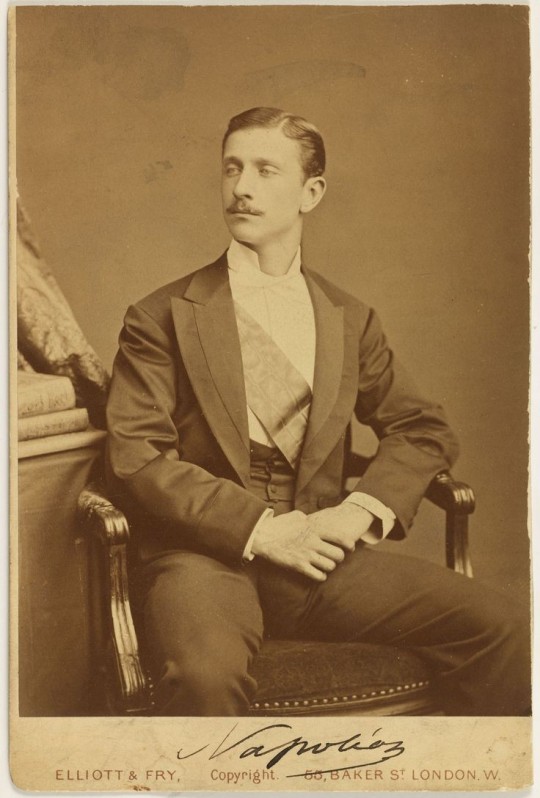
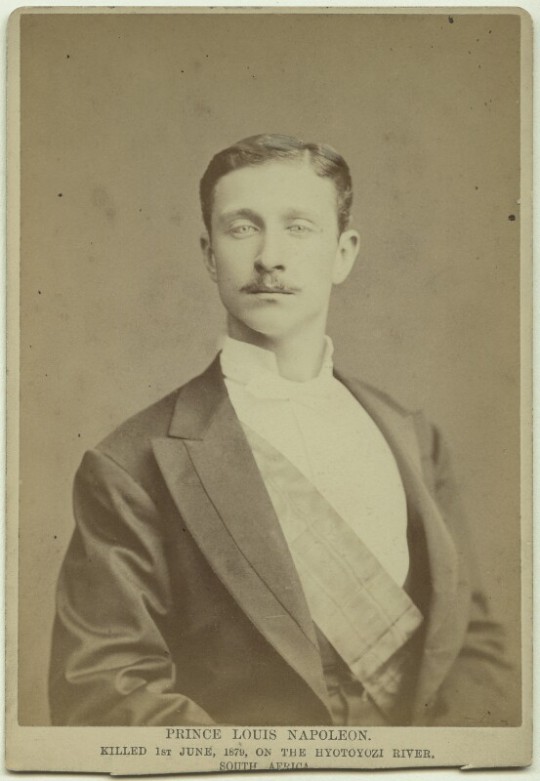
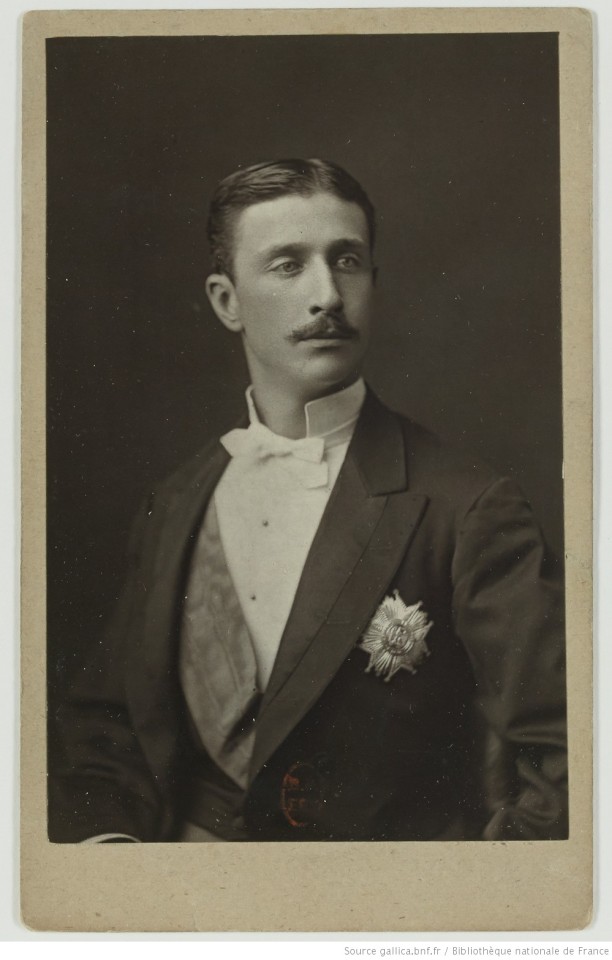
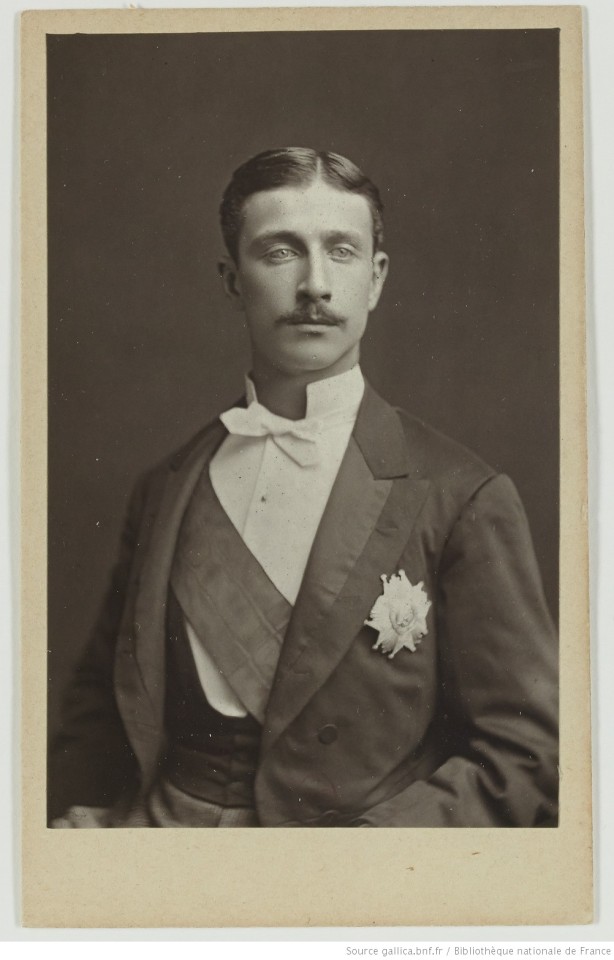

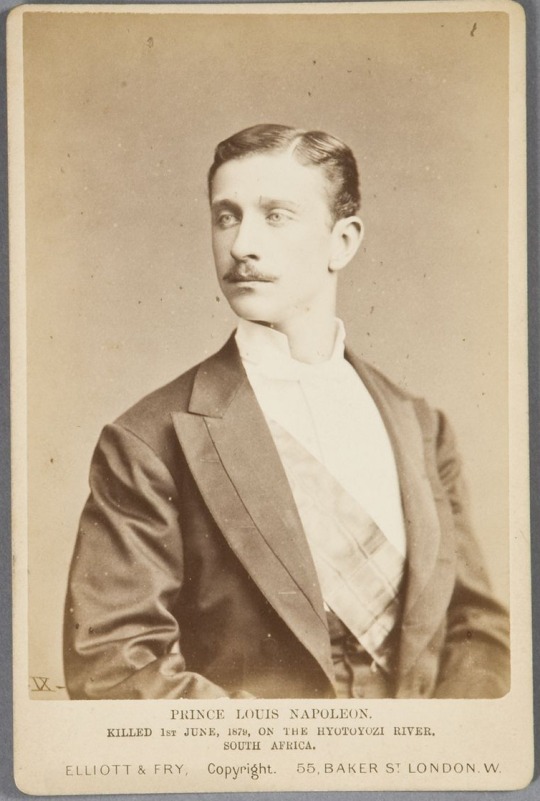

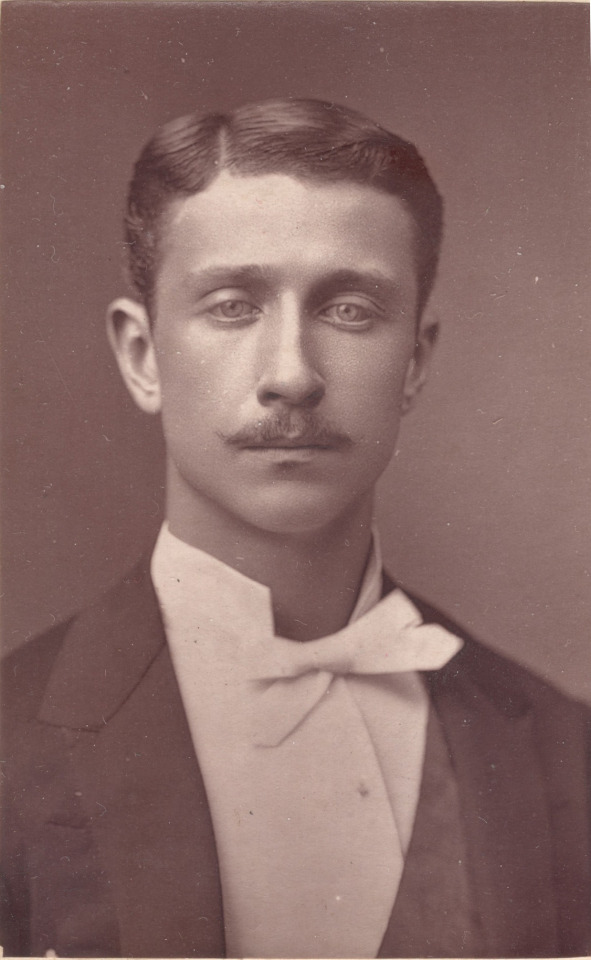


Photographs of Louis-Napoléon, Prince Imperial (1856-1879).
Son of Napoléon III, Emperor of the French, and Empress Eugénie. He died during the Anglo-Zulu War at the age of 23.
By Elliott & Fry c. 1876-1878, by an unknown photographer c. 1876 and by Alex Bassano c. 1879.
(Part 2)
#history#old photography#antique photography#19th century#antique#victorian era#19th century fashion#19th century photography#old photograph#victorian photography#1800s#1870s#antique portrait#gilded age#belle epoque#early photography#victorian fashion#fashion history#history nerd#late 19th century#mustache#cabinet card#victorian boyfriend#victorian#vintage#belle époque#napoleon#napoleon prince Imperial#napoleon bonaparte#napoleon iii
113 notes
·
View notes
Text
Hate British military literature. I'm reading about the Anglo-Zulu war and for some reason I'm reading half a chapter about some guy named Lieutenant Glynn and his career in Gibraltar??
7 notes
·
View notes
Text
youtube
The Disastrous Anglo-Zulu War
38 notes
·
View notes
Text
25 of 250: Favorite Films - Zulu
Not long ago, work colleagues and I got into a discussion about what our favorite films were. Given my categorical nature I could not resist writing down a list and, as a writing challenge, have decided to write 250 word reviews of my favorite 25 films of all-time. Note: these are my favorite films, not what I think are the best films of all time.
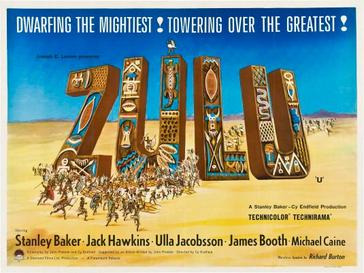
Directed by: Cy Enfield
Written by: John Prebble and Cy Enfield
Starring: Stanley Baker, Michael Caine, Jack Hawkins, James Booth
Year/Country: 1964, United Kingdom
Is the British classic Zulu racist or anti-imperialist? The film has vociferous defenders and critics, each having good ammunition for their arguments. The subject of the film is the Battle of Rorke’s Drift during the Anglo-Zulu War in which 100 British soldiers managed to survive determined attacks by 4,000 Zulu warriors. It still holds the title for the most Victoria Crosses awarded in a single battle.
For those who claim the film is racist, it’s impossible to ignore that the Anglo-Zulu was fought for racist and nakedly imperialist reasons, the battle features African warriors armed with spears against Europeans wielding breech-loading rifles, and the film starts with the exploitive scene of a Zulu wedding ceremony. These are all valid critiques and impossible to ignore. And we shouldn’t. The Anglo-Zulu War led to a century of apartheid in South Africa, just as other colonial adventures did.
However, the arguments claiming the film is anti-imperialist are just as valid. The soldiers are all professionals who view the Zulus as dangerous and worthy opponents; they are unmotivated by patriotism. When one private asks a grizzled veteran “why us?”, the sargeant deadpans “because we’re here, lad.” The nihilism of the troops undercuts any rah-rah moments, resulting in a much more human story than might’ve otherwise been told. At the end of the battle, one officer asks, “So, you’ve fought your first battle. How do you feel?” The answer: “Sick.” Such moments go a long way to minimizing the film’s more troubling attributes.
4 notes
·
View notes
Text
Hlobane was the other great Zulu victory:
While Isandlwana gets a great deal of fame, Hlobane was a victory in its own way no less momentous and confirming one of the key elements that made this war distinctive. While the war would change at Khambula when newer-style artillery finally made its full debut on the battlefield along with machine guns, the earlier battles were rifles vs. spears and, save at the static fighting at Rorke's Drift that was more than a little akin to Blood River the Zulus rolled over the British. This underscores a key lesson of real wars, that machines alone can decide things in certain contexts but in others they create very real weaknesses that a seemingly obsolete force can and will exploit and make itself certain to do so.
It should also be noted in European terms of the time that artillery was the real killer in war, so the Zulu falling to that and to machine guns was a case of patterns that happened to European armies as well, and when a European army falls to this at Sadowa or Sedan they are considered incompetently led but it's not taken as an entire verdict on a people or a culture.
#lightdancer comments on history#black history month#afican history#military history#anglo-zulu war#battle of hlobane
0 notes
Text
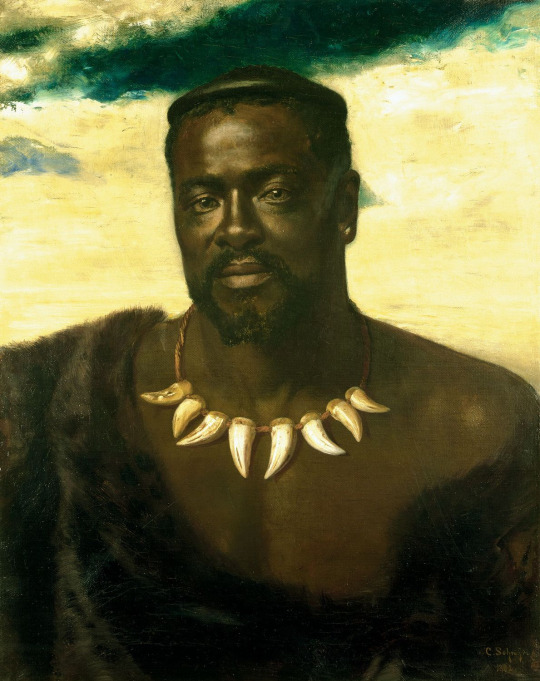
Cetshwayo kaMpande - was the King of the Zulu Kingdom from 1872 to 1879 and its leaders during the Anglo-Zulu War of 1879. He famously led the Zulu nation to victory against the British in the Battle of Isandlwana.

Cetshwayo was the nephew of the great King Shaka and succeeded his father Mpande as King of the Zulus in 1873.

3 notes
·
View notes
Text
if youre gonna get weirdly invested in a war that you think the other side shoulda won at least pick something cool like spartacus week or the anglo zulu war. the civil war is the lamest possible choice on earth to pick the confederates were 100 percent swagless
9 notes
·
View notes
Text
Info on Kanduu's character
Name: Rupert (surname unknown)
Nationality: British (English)
Age: canonically unknown, but likely in his late 30s to early 40s (if we're saying his age is the same as the actor's then he's 42)
Height: 6 ft
Eye colour: blue
Hair colour: light brown
Army Rank: Lieutenant
War he was involved in: Anglo-Zulu war
#goosebumps#goosebumps 2023#slappy the dummy#goosebumps disney plus#goosebumps slappy#kanduu#slappy#chris geere#goosebumps series
9 notes
·
View notes
Text
Events 3.29 (before 1960)
1430 – The Ottoman Empire under Murad II captures Thessalonica from the Republic of Venice.
1461 – Battle of Towton: Edward of York defeats Queen Margaret to become King Edward IV of England, bringing a temporary stop to the Wars of the Roses.
1549 – The city of Salvador, Bahia, the first capital of Brazil, is founded.
1632 – Treaty of Saint-Germain is signed returning Quebec to French control after the English had seized it in 1629.
1792 – King Gustav III of Sweden dies after being shot in the back at a midnight masquerade ball at Stockholm's Royal Opera 13 days earlier.
1806 – Construction is authorized of the Great National Pike, better known as the Cumberland Road, becoming the first United States federal highway.
1809 – King Gustav IV Adolf of Sweden abdicates after a coup d'état.
1809 – At the Diet of Porvoo, Finland's four Estates pledge allegiance to Alexander I of Russia, commencing the secession of the Grand Duchy of Finland from Sweden.
1847 – Mexican–American War: United States forces led by General Winfield Scott take Veracruz after a siege.
1849 – The United Kingdom annexes the Punjab.
1857 – Sepoy Mangal Pandey of the 34th Regiment, Bengal Native Infantry mutinies against the East India Company's rule in India and inspires the protracted Indian Rebellion of 1857, also known as the Sepoy Mutiny.
1867 – Queen Victoria gives Royal Assent to the British North America Act which establishes Canada on July 1.
1871 – Royal Albert Hall is opened by Queen Victoria.
1879 – Anglo-Zulu War: Battle of Kambula: British forces defeat 20,000 Zulus.
1882 – The Knights of Columbus is established.
1927 – Sunbeam 1000hp breaks the land speed record at Daytona Beach, Florida.
1936 – The 1936 German parliamentary election and referendum seeks approval for the recent remilitarization of the Rhineland.
1941 – The North American Regional Broadcasting Agreement goes into effect at 03:00 local time.
1941 – World War II: British Royal Navy and Royal Australian Navy forces defeat those of the Italian Regia Marina off the Peloponnesian coast of Greece in the Battle of Cape Matapan.
1942 – The Bombing of Lübeck in World War II is the first major success for the RAF Bomber Command against Germany and a German city.
1947 – Malagasy Uprising against French colonial rule begins in Madagascar.
1951 – Julius and Ethel Rosenberg are convicted of conspiracy to commit espionage.
1951 – Hypnosis murders in Copenhagen.
1957 – The New York, Ontario and Western Railway makes its final run, the first major U.S. railroad to be abandoned in its entirety.
0 notes
Text
Forgotten Battles in South African History: The Battle of GatsLaager
Introduction
In the tapestry of South African history, certain confrontations loom large in the collective memory: the Zulu defeat of the British at Isandlhwana, the Anglo Boer War, the Border Wars, and the struggles against Apartheid. Yet, there exists a pivotal clash that has largely faded from the annals of time—the Battle of GatsLaager. This forgotten battle, which would later be renamed…

View On WordPress
0 notes